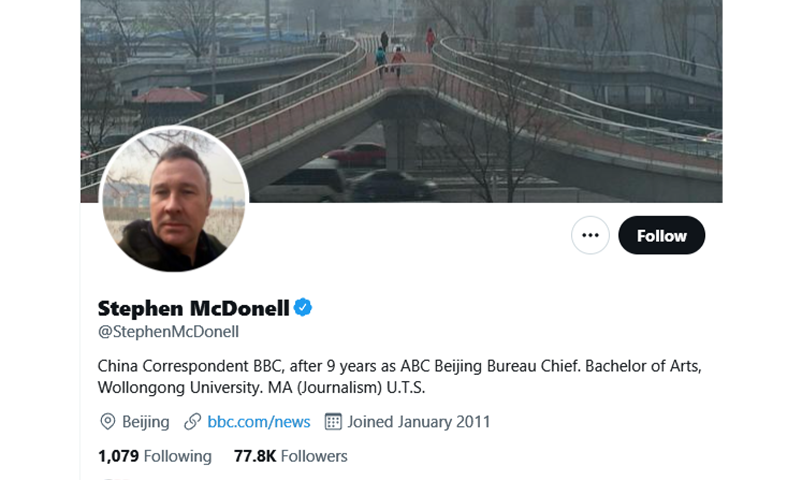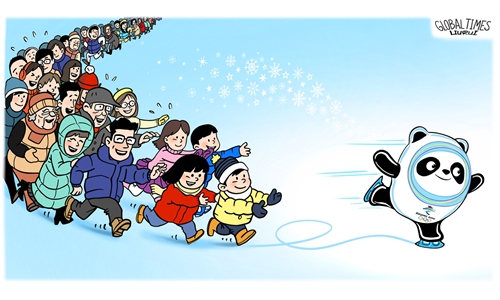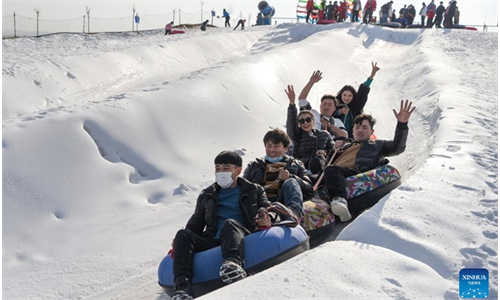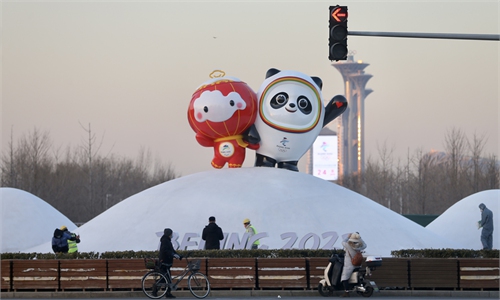BBC correspondent blocks Chinese follower after being asked to ‘report China objectively,’ revealing foreign media’s long- standing double standards

Photo: Screenshot from Stephen McDonell's Twitter home page
Some foreign media have been hyping affairs related to Beijing 2022 long before the Games began. In the latest example, BBC's China correspondent Stephen McDonell blocked a follower from the Chinese mainland after the latter asked him to be objective and balanced in his reporting on the Games, given his continued indulgence in double standards, sarcasm and ignorance of the facts.
A Global Times reporter on Friday reached the blocked Chinese follower, who commented on McDonell's twitter on Thursday that "you should report the news objectively and rationally, and show the reader the truth without adding your own personal stance and emotions."
In the Thursday post, McDonell said "imagine how hard it would have been to get tickets if they'd go on sale" and feel "privileged" to be able to see these athletes. By saying this, McDonell is hinting that Chinese authorities would manipulate the ticket distribution, those who get the tickets will be deliberately "chosen."
It is an old trick for McDonell to turn a deaf ear to different opinions and deliberately distort information about China and attach tags to others and disregard facts, which is opposite to their self-proclaimed "professionalism," the blocked follower told the Global Times.
No one expects the foreign media to report only good things about China, but at least, they should endeavor to provide real, objective and rational reporting. I think this is a basic professional principle for journalists. And as readers, what I want to learn from media reports is real facts, rather than writers' personal stances, the follower said.
Besides losing professionalism, McDonell warned the Chinese follower, "you should not tell me how to do my job if you want to keep following me."
In response, the Chinese follower said "you are a journalist, we are readers, you can monitor the government, and we have the right to monitor journalists." Then he received a reply from McDonell saying "last warning" before he found that he had been blocked by McDonell.
McDonell on Friday released a post saying that the Chinese follower attacked him but he did not reveal the exact communication between them.
"How come it is I who attacked him when I did not use any insulting or attacking word in the comments?" the blocked follower said, asking McDonell to stop lying.
McDonell called the follower a "Party attack dog." He also used words like "doofus nationalists" and "rando apologists" to describe people having different opinions with him. In another tweet on Friday, McDonell attacked Chinese diplomat in Lebanon Cao Yi, accusing the latter of a "so-called" online campaign against him.
He would block all those who said favorable things about China and called them "Party attack dogs," another Chinese Twitter user who had also been blocked by McDonell told the Global Times.
In another McDonell's story posted on Friday, he continued his rhetoric by saying that "to be chosen as a spectator for these Olympic events, you are most likely to be from a Communist Party organization, a state company, or a student group" as "the planners have decided that such groups can be easily counted on to do what needs to be done (especially when compared to the general public)."
This is in accordance with a sarcastic style McDonell often used to mislead readers in China reports. In fact, the reason for Beijing organizers' decision of dispatching tickets instead of a public sales was in consideration of epidemic prevention.
McDonell became famous among Chinese readers as he published highly sarcastic reports of events in Wuhan in late 2020 by using an underworld filter to cast a shadow over people and life in the city that was uniting and fighting for a revival following the COVID-19 outbreak.
He also smeared an activity of the Chinese Embassy in Japan to invite Japanese residents to Xinjiang after the epidemic as a propaganda activity of the Chinese government. He tried to fuzzy focus when the Global Times debated with him over the issue.



